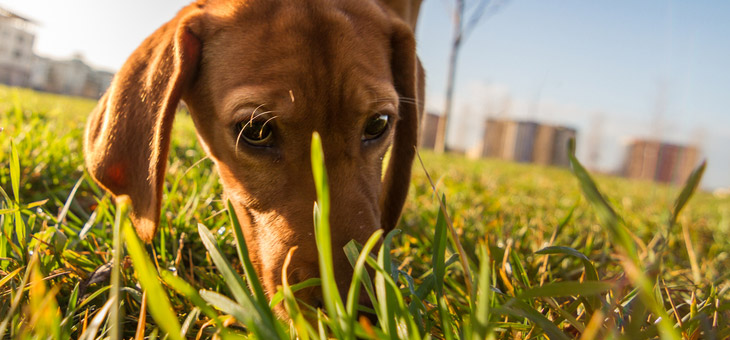If you’ve ever walked a dog, you’ll know that one of its greatest joys is sniffing everything – and possibly following up with a whizz on said sniff area.
Dogs have an amazing sense of smell. They have 25 times more smell receptors than humans, according to my research, which apparently means they smell 100,000 times better, though I’m not sure how you would quantify that.
Researchers have been putting that extraordinary ability to the test in the medical field, testing their ability to sniff out various forms of cancer. And progress has been made.
Online magazine Dogs Naturally explains that cancerous cells release different metabolic waste products than healthy cells. They smell different, and dogs have been shown to be able to detect these waste products even in the early stages of cancer.
Dogs have been shown to be able to detect lung cancer from a person’s breath, melanoma by sniffing skin lesions, prostate cancer from urine and bowel cancer from faeces.
Dogs Naturally presents the following research.
- In a study conducted in Amersham, England, and published in the British Medical Journal, researchers tried to find out if dogs could be trained to identify bladder cancer solely based on urine odour. They correctly identified bladder cancer 41 per cent of the time.
- In a study conducted by the Pine Street Foundation, breath samples of 31 breast cancer patients, 55 lung cancer patients and 83 healthy people were presented to five trained scent dogs (three Labrador retrievers and two Portuguese water dogs). These dogs were able to detect or rule out breast and lung cancer, at all stages of the disease, with approximately 90 per cent accuracy.
- Tallahassee melanoma expert Dr Armand Cognetta gathered samples of melanomas and his trained dog George was able to detect the melanoma approximately 99 per cent of the time.
- A study in the European Respiratory Journal reported that four trained dogs (one Australian shepherd, two German shepherds and one Labrador) correctly identified lung cancer in 71 of 100 samples from lung cancer patients. These dogs also ruled out cancer in 372 of 400 samples that were known not to have the cancer.
- In Milan, researchers took urine samples from 320 men with prostate cancer and 357 without. The two dogs used had an accuracy rate of 98 per cent.
Researchers at the University of Waikato assessed 27 studies of dogs sniffing out cancer and “found considerable evidence that animals can distinguish between samples collected from disease-positive and disease-negative individuals”.
So why aren’t dogs stationed at surgeries around the world?
Arizona State University researchers recently told online magazine Slate that a major challenge was the variation in detection rates – “by individual, by breed, by time of day, by age, and level of training”. They said: “Dogs are so attuned to human communication that, as with drug-sniffing canines, handler bias can influence whether a dog finds what he’s supposed to be looking for. Dogs can get tired, grouchy and bored, which can skew their precision.
“So the best use of their incredible noses probably isn’t to have them waiting in labs to sniff out cancer. Instead, their potential is in bio-inspiring the engineering of electronic and robotic chemical-detection machines.”
Are you excited by the research? Are you diligent about getting regular check-ups?
Related articles:
Ovarian cancer warning signs
Don’t make this skin check mistake
Explaining stomach cancer

